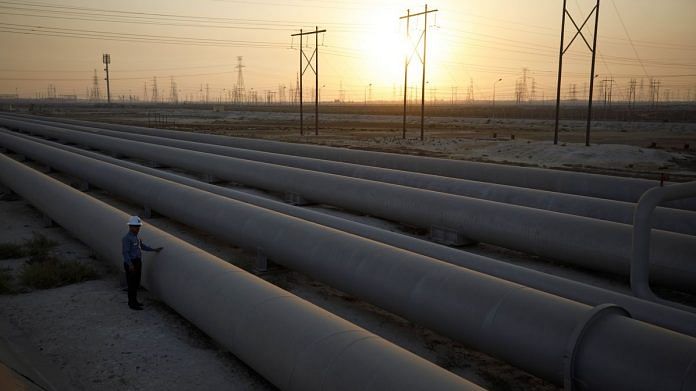As is often the case with an impulsive all-powerful ruler, the consequences of Crown Prince Mohammad bin Salman’s precipitous oil war may take years to play out. True, the repercussions for his country’s economy seem clear: stunted growth, increased debt, dwindled reserves, wider deficits. On the foreign-policy side of the ledger, Riyadh’s relations with Moscow are now in the red.
But did anyone in Prince Mohammed’s close circle think through the implications for ties with other Arab states? The countries closest to Saudi Arabia — Bahrain, the United Arab Emirates, Egypt — will stay onside, either because their rulers share Riyadh’s worldview, or because they depend on its largesse. Some, like Kuwait and Oman, will endure the reduced export revenues because they are too small to criticize the Saudis. (Qatar, still subject to an embargo by a Saudi-led coalition, won’t get much of a hearing.)
Farther afield, the economic pain caused by crashing oil prices will sharpen hostility toward Saudi Arabia and undermine Prince Mohammed’s lofty foreign-policy ambitions.
In Algeria, for instance, the ruling elite and the antigovernment protest movement known as Hirak share a deep-seated suspicion of Saudi influence in North Africa. The crown prince, better known by his initials MBS, has sought improved relations with Algiers, making a personal visit in late 2018. Still, as the country, unsettled from last year’s political upheavals, struggles to cope with greatly reduced oil prices, Algerians know whom to blame.
Also read:By using oil as a weapon, Saudi Arabia has hurt global investments in the sector
Nowhere is the collateral damage of MBS’s oil war likely to be greater than in Iraq, which the Saudis have courted since the two countries resumed diplomatic relations in 2015. MBS has prioritized weaning Iraq away from its dependence on Iran, offering everything from soft loans to cheap electricity.
These efforts were meant to overcome accumulated Iraqi mistrust, going back to the Saudi role in defeating Saddam Hussein’s 1991 grab for Kuwait. Although the Iraqis and Saudis were never likely to become bosom buddies, Riyadh hoped to check Tehran’s growing influence. Last year’s street protests across Iraq, in which protesters portrayed Iran as the root of much that ails their country and burned images of Supreme Leader Ali Khamenei, should have created an opportunity for greater Saudi inroads.
MBS’s oil war may have nixed that effort. Iraq, already reeling from the effects of the new coronavirus crisis and continued political paralysis in Baghdad, cannot bear the huge economic burden imposed by the prince’s impetuousness.
Iraq, OPEC’s second-largest producer, has had to cut its selling prices to compete with Saudi Arabia, especially in China, a crucial market for Iraqi crude even before the oil war started. But if prices remain depressed, Baghdad will struggle: 95% of its income comes from oil exports.
The Iraqi budget for 2020 is based on oil at $56 a barrel, which was already a tall order before last week’s crash to near $30. Officials are warning the government will not be able to pay salaries — the state is far and away the largest employer — and keep up food imports without suspending development projects and borrowing abroad.
To be sure, Iraqi politicians bear a large portion of the blame. A succession of governments has failed to diversify the economy. The political impasse in Baghdad has become so acute, parliament has yet to approve the 2020 budget. After the failure of the latest efforts to form a new government, caretaker Prime Minister Adel Abdul Mahdi has said he will no longer perform most of his duties.
Yet if the government is unable to pay salaries — doubly damaging when it needs to manage the virus epidemic — and the economy tanks, most accusatory Iraqi fingers will swing away from Tehran and toward Riyadh. And the images being torched will likely be of MBS.- Bloomberg
Also read: Taken to brink by Trump, Gulf States are backpedaling on Iran



